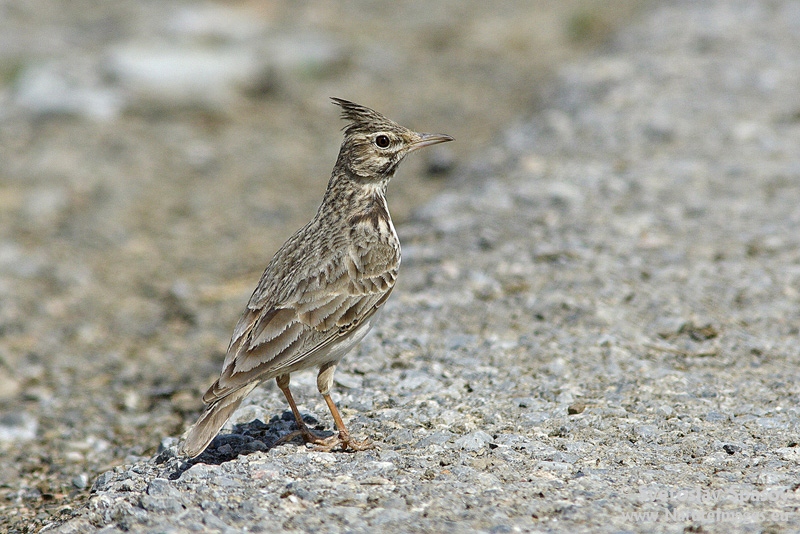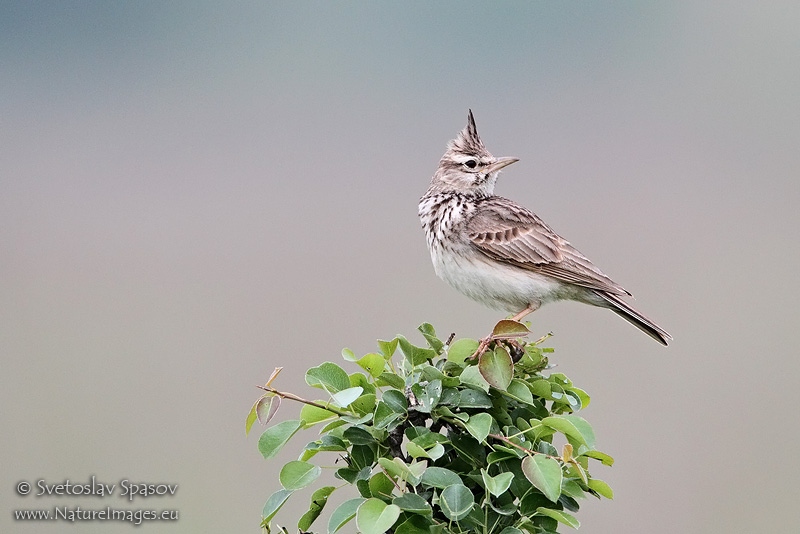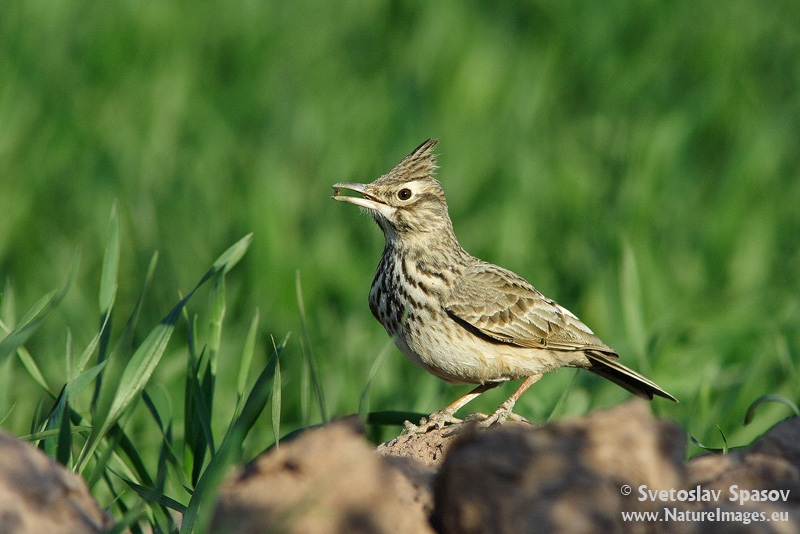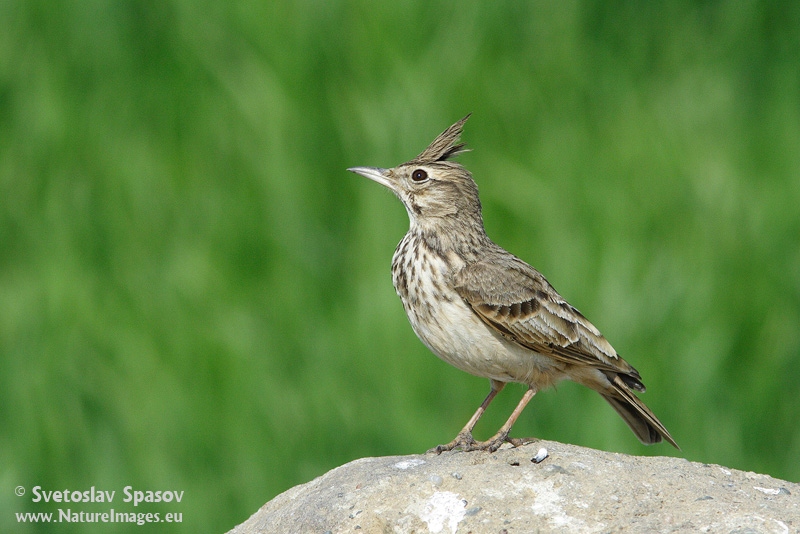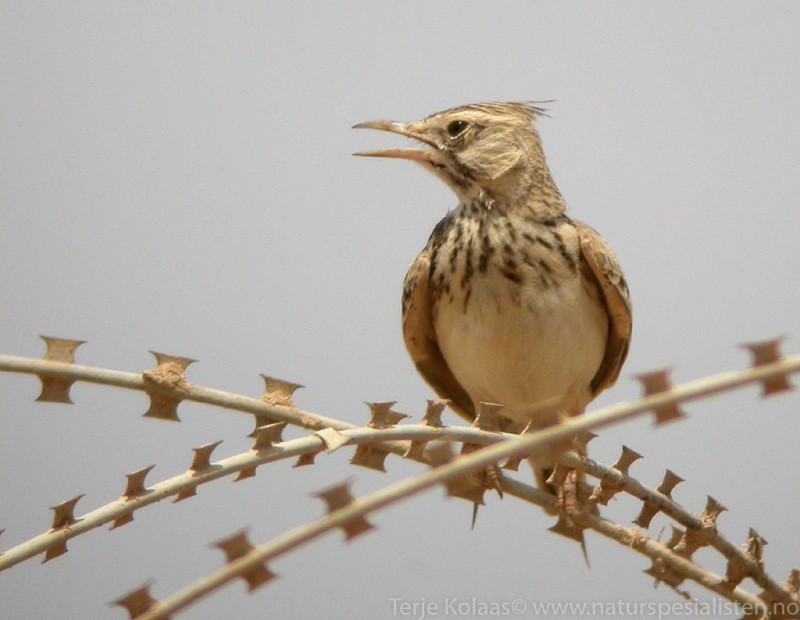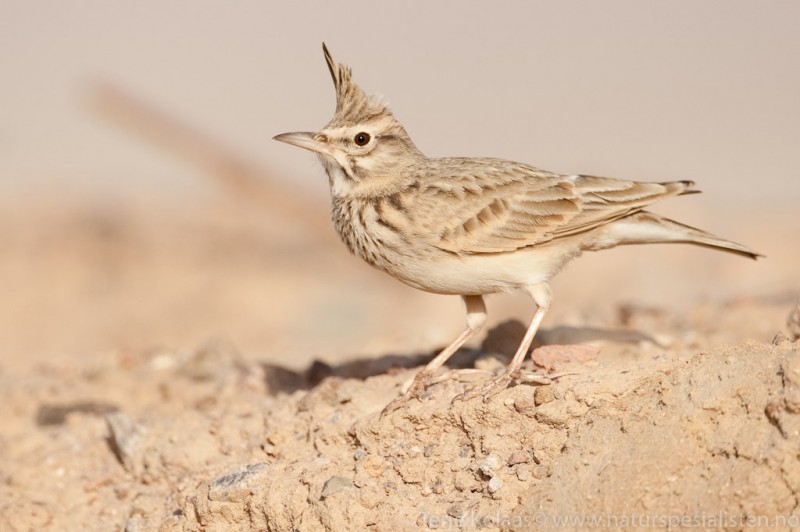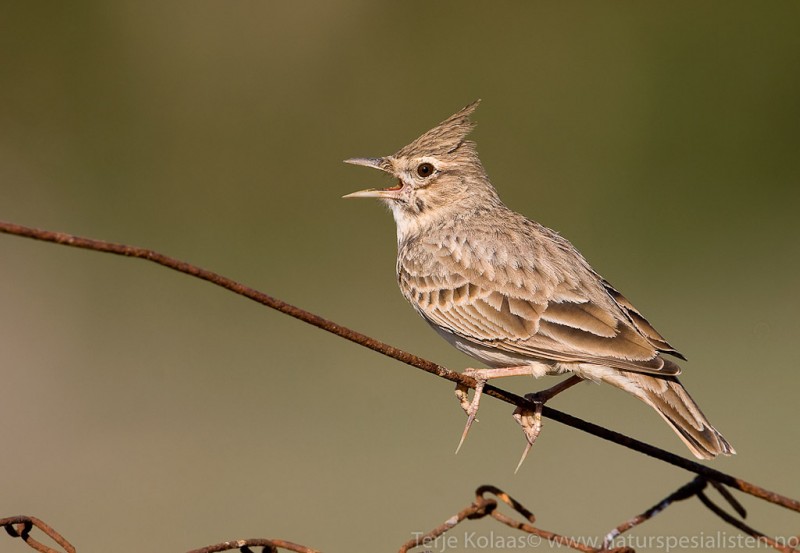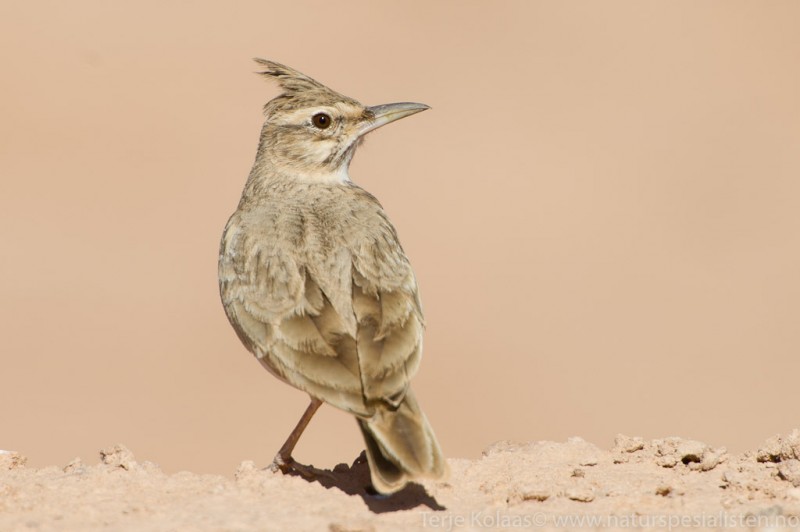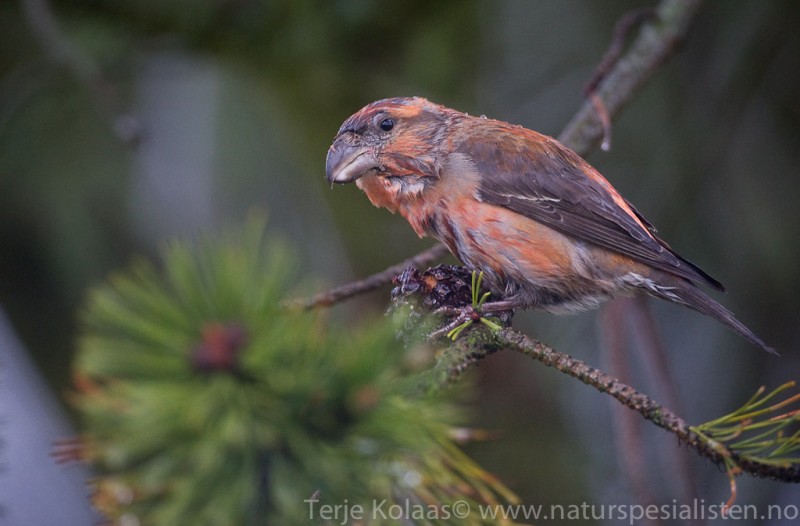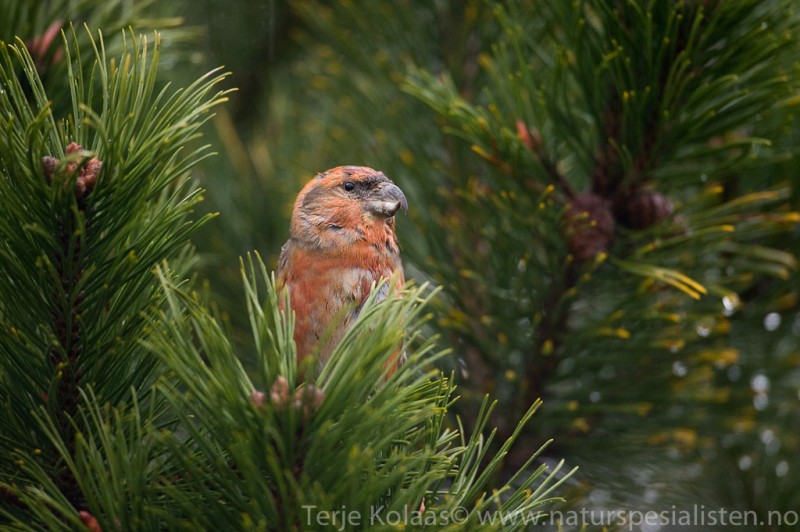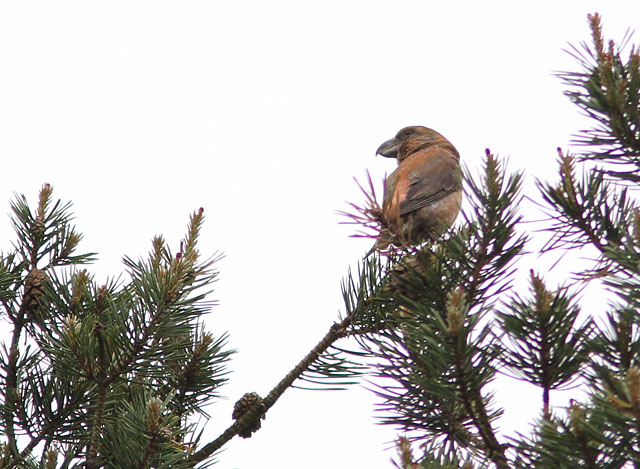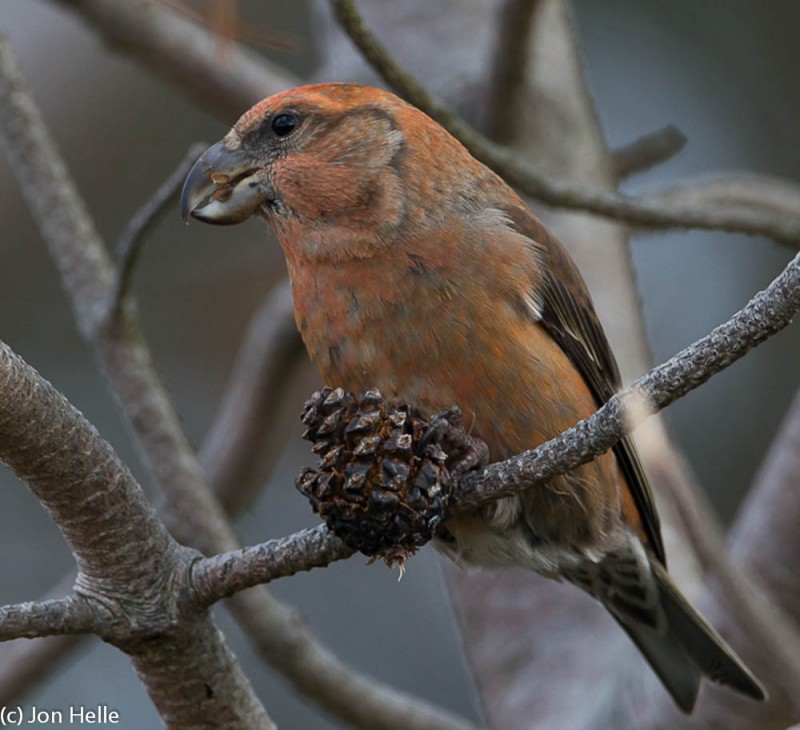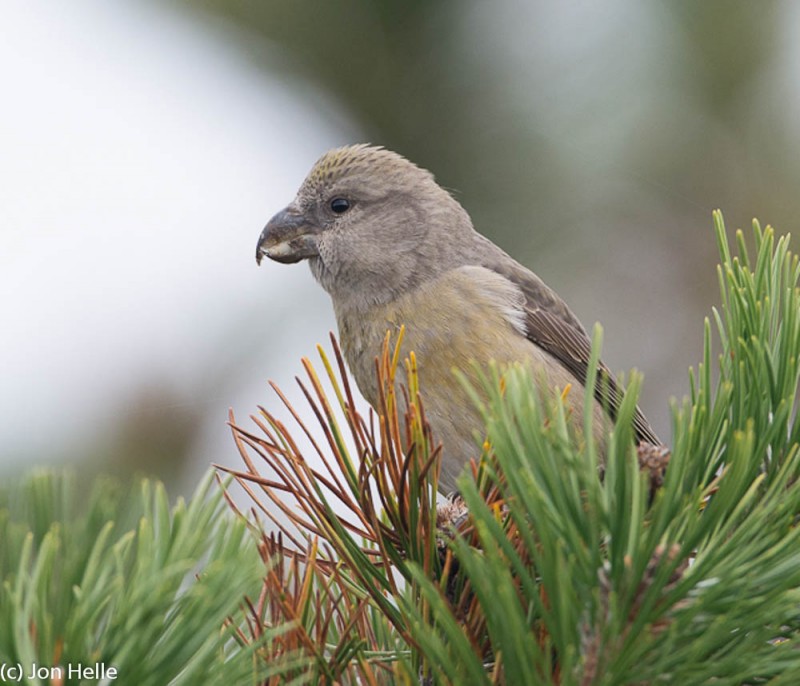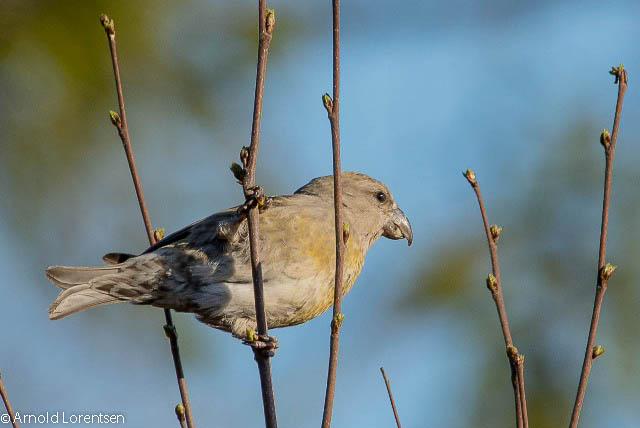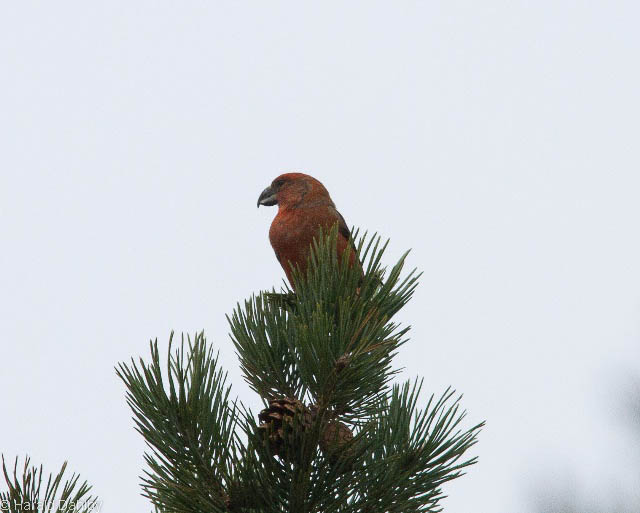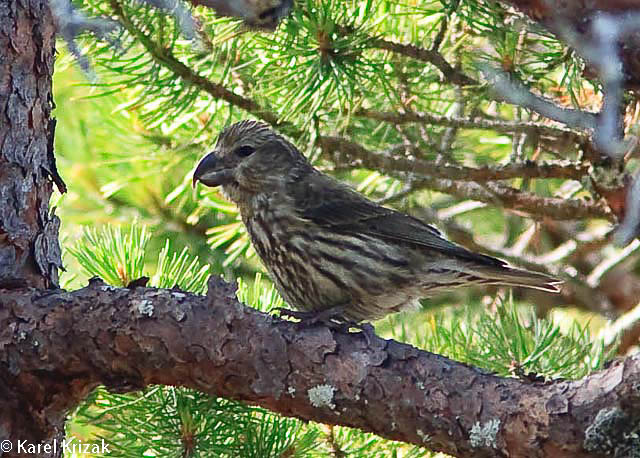Crested Lark (Galerida cristata)
Parrot Crossbill (Loxia pytyopsittacus)
Gives a bulkier impression than Skylark, with longer bill, heavier head and body, and broader tail. In flight broad wings and short tail prominent. Lacks white edges on wings. Orange buff underwings. Crest on rear crown spiky and uneven. Outer tail feathers rufous, not white. Occasional song-flight. Slower wing-beats than skylark. Very similar to Thekla Lark, and identification can be very difficult in areas where both species occur. The much used streaked-breast character is not always relevant because of regional variations. Then habitat, behaviour and voice becomes important to identification, and a combination of structural and plumage character should be used. Bill appears curved (because of straight lower mandible), crest spikier than Thekla, belly deeper, back less heavily streaked , tail coverts less rusty-brown, upper breast usually with less defined streaking. Eye-stripe buffish, rather than white behind eye. Less prone to perch on top of scrubs or bushes than Thekla, and prefers lower altitude .
Sound:Song: a mix of long whistling, fluting sounds, trills and mimicry. Full song quite similar to Thekla Lark. Rudiments of song are often heard and includes more melancholic whistling than Thekla. Contact call/alarm-call: May be the best characteristic to separate it from Thekla Lark where both species occur. Crested Lark call with 2-4 syllables, of which one is extended and fairly flat. The phrase has a less "bouncing" feel to it than Thekla Lark, lacking the accented rapid rise and fall in pitch of the extended note of Thekla Lark.
Song:
Distribution:
Wikipedia: map (se also Xeno-canto below)
Ecology:Birdlife ecology
Links:
Observation.org Latest observations
Image search Flickr NB! May give other species
CCVery similar to Crossbill, but has thicker neck, bigger head, hardly any forehead and deeper bill. Upper mandible is more curved towards the tip than in Crossbill, and the lower mandible is s-shaped with a "bulge". The tip of the lower mandible is seldom visible from behind the upper. The chest is deeper, and many birds have a front heavy appearance. Adult males shows most distinct characters of the species, and other sexes/ages may be difficult to identify because of overlapping characters with Crossbill. Plumage similar to Crossbill, with dark wings and tail. Males with rufous red head and body, females green. Juveniles greyish green with streaking. Posture less erect than Crossbill, which, together with short tail, contributes to the front heavy impression.
Sound:Contact call similar to Crossbill's "chepp", but is on average deeper and lacks the "cut-off" ending of each call. In sum: Parrot Crossbill; hard attack, soft ending, Crossbill: softer attack, cut-off ending. The song consist of improvised, resonant twittering and series of contact calls with no apparent phrases. It is generally slower than in Crossbill, with marked pauses.
Song:
Distribution:
Xeno-canto: map
Ecology:Birdlife ecology
Links:
Observation.org Latest observations
Image search Flickr NB! May give other species
CCSounds:Recorded by Lauri Hallikainen http://www.xeno-canto.org/CC license

 English
English Albanian
Albanian
 Armenian
Armenian
 Bulgarian
Bulgarian
 Catalan
Catalan
 Croatian
Croatian
 Czech
Czech
 Danish
Danish
 Dutch
Dutch
 Finnish
Finnish
 French
French
 Georgian
Georgian
 German
German
 Greek
Greek
 Hungarian
Hungarian
 Italian
Italian
 Latvian
Latvian
 Lithuanian
Lithuanian
 Macedonian
Macedonian
 Norwegian
Norwegian
 Polish
Polish
 Portuguese
Portuguese
 Romanian
Romanian
 Russian
Russian
 Sami : Lule sami
Sami : Lule sami
 Sami : North sami
Sami : North sami
 Sami : South sami
Sami : South sami
 Scientific names
Scientific names
 Serbian
Serbian
 Spanish
Spanish
 Swedish
Swedish
 Ukrainian
Ukrainian


